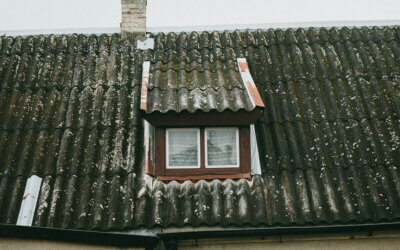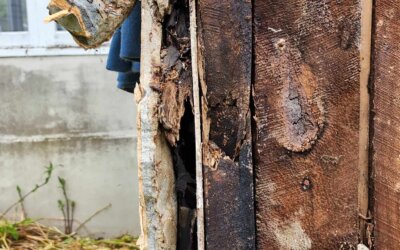What does asbestos look like?
6 October 2022What does asbestos look like? It’s something of a trick question, as asbestos can look like many things. Learn more about how to spot asbestos here.
Asbestos is unfortunately quite common in older New Zealand homes and properties, as it was regularly used in a variety of building materials prior to the 2000s.
Many Kiwis live and work in older buildings, and may wonder if they could spot asbestos themselves, if only they knew what to look for. However, asbestos itself doesn’t look like any one thing – it is not simply any crumbly white powder or other identifiable material.
Instead, asbestos can look like a range of common building materials, which is why it’s more important to know which materials often contain asbestos. These are known as asbestos-containing materials (ACM), and if you spot them in your home or workplace that was built between the 1940s and 1990s, it’s a good idea to have them tested for asbestos for your peace of mind.
Here are some of the most common asbestos containing materials in New Zealand and what they look like, so you can keep an eye out for them in your surroundings.
What does asbestos look like in textured paint?
Textured paint was especially common in the 1970s, and used on many ceilings and walls across the country for many years.
The most common texture was the ‘popcorn’ look, but textured paint also included stippled and swirled styles.
If you see any of these paint textures in your home or workplace, especially if the property was built around the 1970s, it may be a good idea to get it tested.
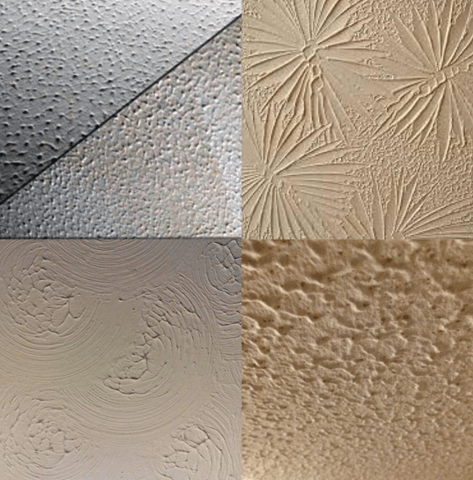
What does asbestos look like in fibre board?
Low density asbestos fibre board, also known as asbestos insulating board, is a lightly compressed board material usually found in internal wall and ceiling panels, and also as acoustic insulation.
Asbestos fibre board looks a lot like asbestos cement sheeting (fibro) and plaster board, making it hard to identify on sight. However, you can look at the back side of the sheeting to check the trade name. Asbestolux and Duralux were both common brands that used asbestos, so if you see them, it’s a good sign there is asbestos present – although the lack of a name does not necessarily mean there is no asbestos.
Also note that asbestos ceiling tiles were often perforated.
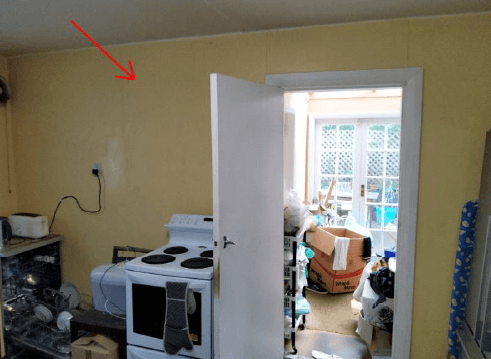
Floor tiles and vinyl sheets
Vinyl flooring and tiles have been popular options for flooring in New Zealand for years for their style, durability, and affordability. Through the 1950s in particular, asbestos was used in vinyl flooring products.
While many home-owners have replaced old vinyl flooring from this era, it’s still quite common in older New Zealand homes, and may even still be present under more recent layers of vinyl or tiles.
The good news is that asbestos vinyl flooring is typically non-friable, which means that if left undisturbed, there is usually a low chance of it becoming a health risk. However, if the flooring becomes damaged or broken, it can quickly become a health hazard.
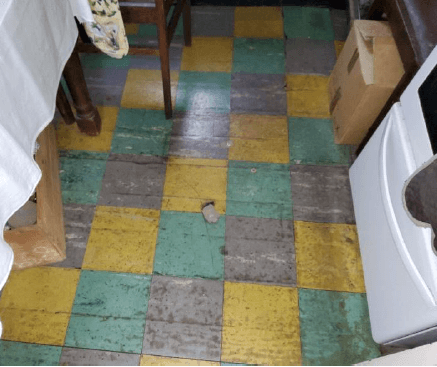
Get help from the asbestos removal professionals
The truth is, there are many products that can contain asbestos, and it can be extremely hard to determine which ones may be health hazards. In fact, asbestos testing is the only real way to determine if asbestos is present, because even seasoned professionals can’t always tell if there is a health risk just by looking at a property.
That’s why it’s best to bring the experts on board any time you suspect the presence of asbestos, plan to do renovations that might expose asbestos, or if you would simply like peace of mind.
PRO Environmental Services offers expert asbestos removal all over the Wellington region, including the lower North Island and upper South Island. Don’t hesitate to get in touch to learn more or request your free quote.
Related articles from our blog
3 must-know facts about asbestos in Porirua
How much do you know about asbestos in Porirua? Here are three simple facts about this dangerous substance, and why we’re the experts at removing it.
Common types of asbestos found in Upper Hutt
Asbestos is common in homes and commercial buildings in the Upper Hutt. Here are some of the most common types, and what to do if you find it on your property.
Why Environmental Remediation is Essential to your Demolition Project
Demolishing a property? You may need environmental remediation to remove or contain any hazardous substances present in the soil, sediment, or groundwater.

